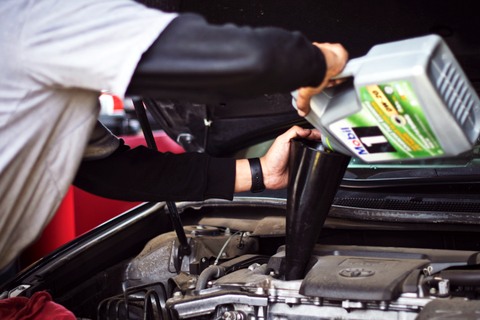A Practical Car Care Guide for Your College Car
Tips to Keep Your Ride as Superior as your Classwork
Each year, numerous college students experience the excitement of purchasing their first car, eagerly anticipating the benefits it offers such as convenience, independence and the feeling of ownership.
However, owning a car can be overwhelming for many people due to the responsibilities it entails. Often a car will be overlooked due to academic commitments, social obligations and even the pressure of excelling as a college admission essay writer, similar to professionals in the top online essay writing services. There are resources available to help students manage tasks effectively, such as “write my essays.” The car also needs a methodical approach
Know Your Car Manual
Like a college textbook, the owner’s manual of a car serves as a valuable reference created by car manufacturers to assist you in comprehending the inner workings of your vehicle. Its significance should not be underestimated and can be equated to the importance of the academic textbooks of a required class.
Taking the time to carefully go through your car’s manual can provide you with important knowledge about your vehicle. You might come across features that you were unaware of or find solutions to common issues. It is always beneficial to refer back to the manual whenever you are uncertain, as even experienced drivers do so without any negative consequences.

Familiarize Yourself with Car Basics
Having a rudimentary comprehension of how your car functions can act as a barrier, shielding you from possible problems.
To illustrate, having knowledge of how to check your oil level can prevent possible harm to your engine. Identifying indicators of a weak battery can prevent you from being stuck in a difficult situation. Understanding the significance of maintaining proper tire pressure can aid in avoiding accidents. Embrace your curiosity and delve into understanding the various parts and functions of your vehicle, as it is an investment that will bring significant benefits in the long run.
Regular Maintenance/Oil Changes

Regular maintenance is essential for prolonging the life of your car and preserving its optimal performance.
Oil is necessary for maintaining optimal performance in your vehicle by lubricating the engine components.
Furthermore, regular oil changes assist in maintaining the cleanliness of the engine by preventing the build-up of dirt and particles. It is important to choose the appropriate oil as stated in the car manual, whether it is conventional, synthetic or a combination. Monitoring the recommended intervals for changing oil will contribute to prolonging the lifespan of your engine.
Tire Check and Rotation
Tires, often overlooked, are extremely important for a car’s safety, performance and fuel efficiency. If tires are filled with too much air, it can cause a rough ride and increased wear. On the other hand, if tires are filled with too little air, they may overheat and potentially burst.
Make sure to regularly inspect your tire pressure, both for your primary tires and your spare tire. Following the recommended tire rotation schedule in your manual will help extend the lifespan of your tires and improve their performance.
DIY Car Maintenance
Doing simple maintenance tasks on your own can save you money and help you better understand your vehicle.
Replacing Windshield Wipers. Having a clear view while driving is extremely important for safety, and your windshield wipers play a vital role in achieving this. Numerous professionals recommend replacing your wipers every six to 12 months, although this duration might differ based on the quality of your wipers and where you live.
If you observe streaks or experience scraping, it is advisable to change your wipers immediately. Always consult your manual to ensure you get the right size and follow the correct installation instructions.

Changing Air Filters. Air filters safeguard your engine against detrimental debris, while also improving your vehicle’s overall performance and fuel efficiency.
When the air filters in your vehicle become clogged or dirty, it can put extra strain on your engine and decrease your fuel efficiency. While the frequency of replacing these filters may vary, it is generally advised to do so every 12-to-15,000 miles. This is typically a simple and fast task, often not requiring any tools.
Emergency Kit. You could think about including things such as water in bottles, food that won’t go bad, cozy blankets and a charger for your phone that you can carry around. Depending on where you live, you might also want to add things like tools for scraping ice off your car, sun shades or repellent for bugs. Remember to regularly go through your kit to replace any items you’ve used and make sure nothing has passed its expiration date.
Learn Basic Repairs. Similar to constructing a remarkable essay, acquiring the skills to troubleshoot minor technical issues and gaining knowledge in basic vehicle repairs can be incredibly advantageous.
Begin by practicing basic tasks such as fixing a flat tire, swapping a headlight bulb or jump-starting your vehicle. You can find numerous tutorials and guides online to help you with these tasks. The confidence and value that comes from being able to handle such situations on your own is truly remarkable.
Conclusion
Owning a car in college doesn’t have to be overwhelming. By being diligent and knowledgeable about maintenance, it can become a habit. Although it may appear overwhelming like some of the writing assignments you’ll encounter, if you’re utilizing the best paper writing services for your educational tasks and the best advice given here for your automotive tasks, you will realize that it aids in preserving time and finances and alleviating stress in the future. A well-maintained car not only benefits you, but also maintains its value. So, take on the challenge and approach car ownership with the same determination as your academics for a hassle-free experience.

1 thought on “A Practical Car Care Guide for Your College Car”